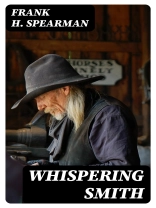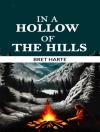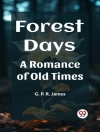In ‘Whispering Smith, ‘ Frank H. Spearman intricately weaves a narrative that intertwines the worlds of railroads and rugged individualism in the American West. The novel follows the life of a railroad detective, Whispering Smith, who personifies the moral complexities of law enforcement in a rapidly changing society. Spearman employs a vivid, lyrical prose style that captures the essence of frontier life, utilizing rich descriptions and sharp characterizations to portray the tension between progress and the lawlessness of the landscape. The book is set against the backdrop of the burgeoning railroad industry at the turn of the 20th century, reflecting the era’s conflicting values of innovation and integrity. Frank H. Spearman, an accomplished author with firsthand experience in the railroad industry, draws upon his deep understanding of the challenges and adventures faced by those who worked on the trains. His career as a journalist and his background in railway work lend authenticity to the narrative, as he explores themes of loyalty, moral ambiguity, and the complexities of human relationships in an evolving society. Spearman captures the idiosyncrasies of his characters, making them resonate with readers beyond their time. Readers who appreciate historical fiction infused with a gritty sense of realism will find ‘Whispering Smith’ a compelling read. Spearman’s masterful storytelling not only entertains but also provokes thought about the ethical dilemmas faced by individuals in a rapidly modernizing world. Recommended for both enthusiasts of Western literature and those intrigued by the intertwined histories of America’s railways and social values, this novel remains a poignant exploration of character amid change.
Giới thiệu về tác giả
Frank Hamilton Spearman (September 6, 1859 – December 29, 1937) was an American author known for his captivating tales of the American West, particularly those set against the backdrop of the railroads. One of his most recognized works is ‘Whispering Smith’ (1906), a novel that intertwines the worlds of western outlaws and railroad detectives, making Spearman a noteworthy figure in early 20th-century American literature. His westerns often provided a nuanced perspective on the frontier ethos and the industrial progress symbolized by the railroad. Spearman’s narratives were celebrated for their swift action, moral gravitas, and authenticity, attributed to his thorough research and genuine admiration for the railroaders who were the unsung heroes of America’s Westward expansion. ‘Whispering Smith’ became so popular that it was adapted into several films and television series, cementing Spearman’s legacy as a western fiction author. Literary scholars recognize Spearman’s work for its realism and detailed portrayal of railway life, which was a novelty at that time (Witschi, N.S., 2001). Drawing upon his banking background, his novels were also marked by their depiction of financial strifes and the importance of law in burgeoning communities. Spearman’s literary style amalgamates regionalist tendencies with the melodramatic thrills of popular literature, making his works both significant cultural artifacts and engaging reads.












